by Pinchas Cohen
Global Affairs
Equity investors are finally taking into consideration political risk as shares in Asia, Europe and US futures–along with the South Korean won—fell on escalating tensions between the US and North Korea.
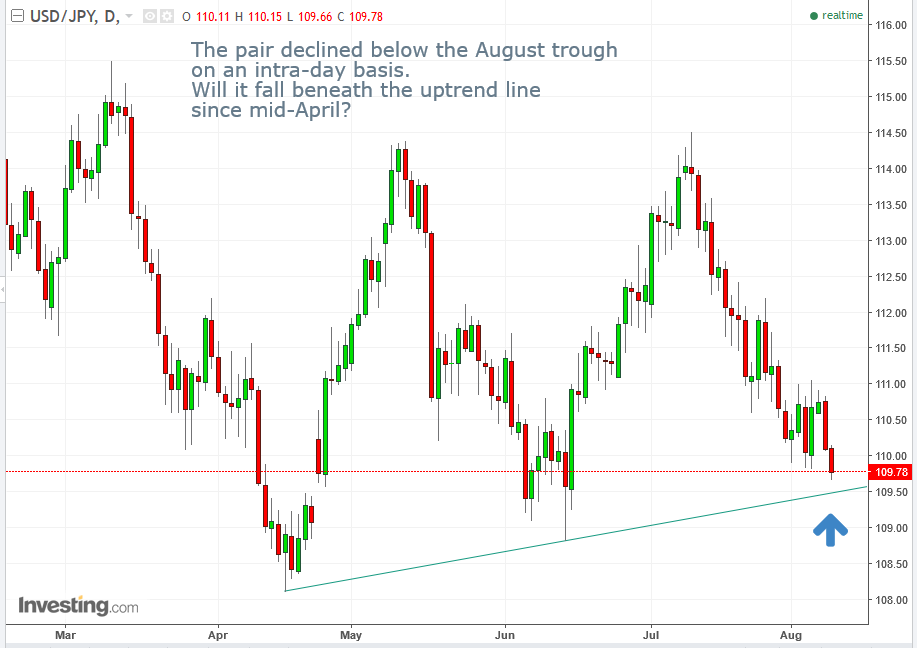
In tandem with North Korean tensions safe-havens have risen. Treasuries, the yen and gold all climbed as the yellow metal headed for its largest gain this month. Global volatility indexes have spiked after President Donald Trump vowed the US would reply with “fire and fury” if North Korea keeps threatening the country.
Almost every sector of the Stoxx Europe 600 dropped, and emerging markets equities were on course for their biggest plunge in more than a month.
Economically, however, investors still believe global growth will continue, and both the Fed and the ECB may remove stimulus. If they do, geopolitical events may have a bigger impact on investors who are nervous about liquidity.
In China, producer prices have been making gains, demonstrating that factory inflation is growing on steady demand. Chinese PPI climbed 5.5 percent in July YoY, narrowly missing Bloomberg’s 5.6 percent estimate. The country's consumer price index increased 1.4 percent, narrowly missing the 1.5 percent forecast, but falling considerably below the 3 percent ceiling.
On Friday, investors will be focused on the US inflation number to gauge the interest-rate outlook for the world’s largest economy.
Oil initially extended its loss as the EIA raised American crude production estimates for 2017 and 2018, and its higher output outlook counters OPEC's initiatives to curb supply. However, oil's direction is contested between bears who don’t see the global glut abating and bulls who see the recent drawdown and reduction of US rig count as a sign of crude's resurgence.
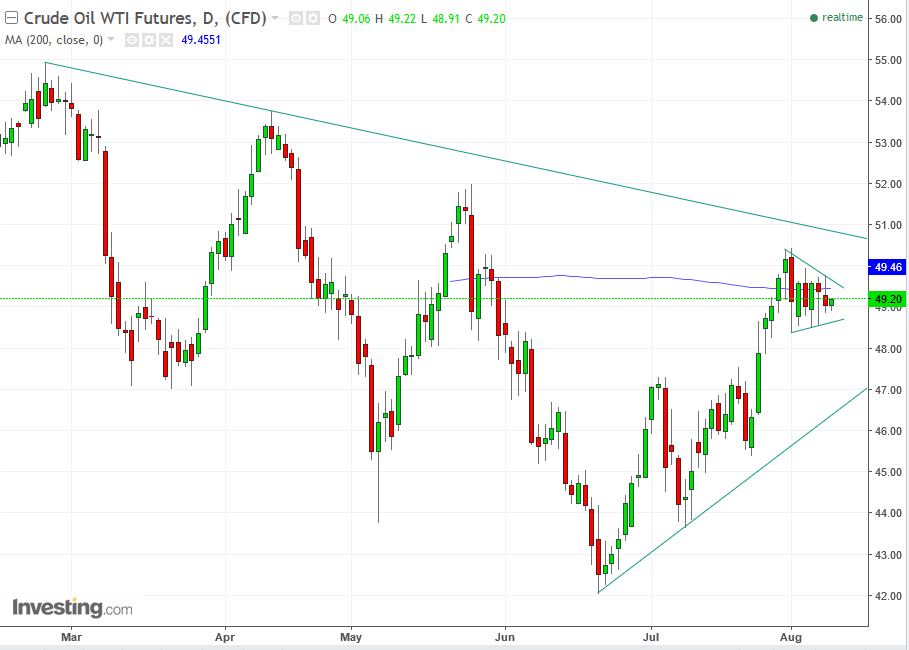
Technically, the price is caught between its primary downtrend since February and its recent uptrend since mid-June. This conflict formed a continuation “pennant.” The fact that it formed beneath the primary downtrend line —and that the 200 dma is smack in the middle of it—demonstrates the critical nature of this price level.
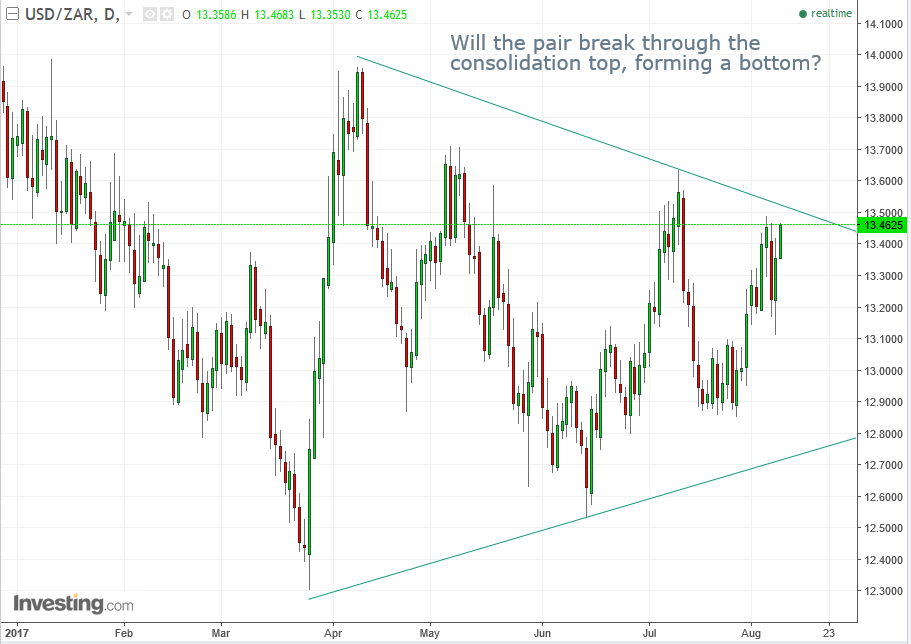
The South African rand has lost almost ten percent of its value since late March, after the South African President Jacob Zuma has been battling off political opponents due to scandals surrounding his presidency, which culminated in him narrowly escaping a no-confidence vote of 198 to 177.
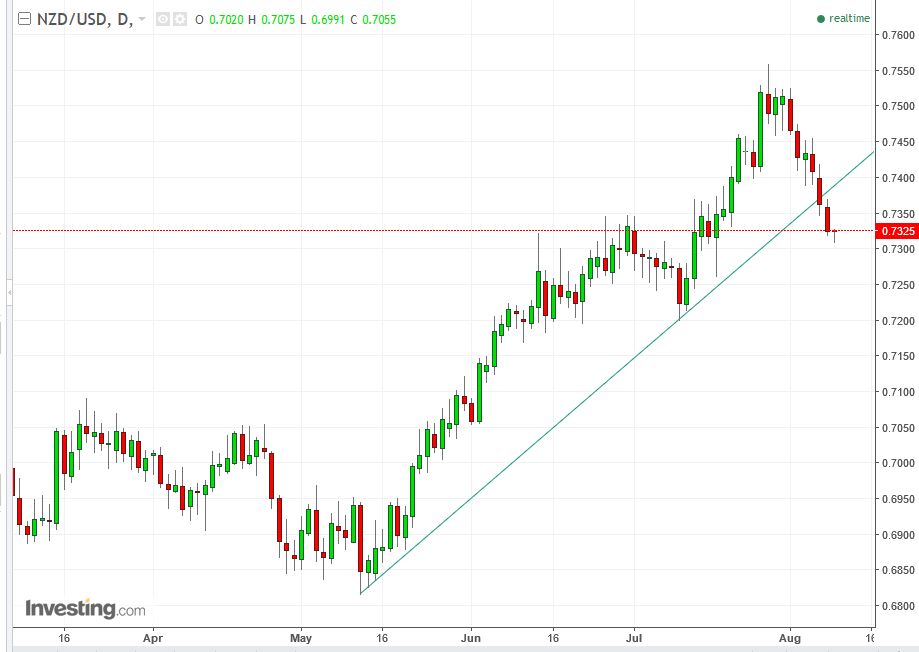
Today, the kiwi extended its loss in anticipation that the RBNZ will take a dovish stance and lower the interest rate. The NZD fell after crossing below an uptrend line since mid-May, but while still above the former 0.7300 July peak.
Up Ahead - EDT
- 17:00 The RBNZ is expected to keep its interest rate flat at 1.75%, and will then release its monetary policy statement and rate statement.
- 18:00 RBNZ Governor Wheeler speaks.
Market Moves
Stocks
- Japan’s TOPIX fell 1.1 percent, its most since May 18.
- Australia’s S&P/ASX 200 was resilient against the region-wide downward trend and added 0.4 percent.
- Hong Kong's Hang Seng lost 0.2 percent.
- China’s Shanghai Composite was down 0.2 percent.
- The Stoxx Europe 600 Index declined 0.5 percent as of 8:17 in London (3:17 EDT), its largest drop in more than a week on a closing basis.
- The MSCI All-Country World Index declined 0.2 percent to its lowest level in more than a week.
- The UK’s FTSE 100 slid 0.6 percent, its first retreat in a week.
- Germany’s DAX sank 0.7 percent, its biggest dip in almost two weeks.
- S&P 500 Futures fell 0.2 percent to its lowest level in more than three weeks.
Currencies
- The yen rose 0.3 percent to 110.01 per dollar, an eight-week high.
-
- The euro decreased less than 0.05 percent to 93.62.
- The Dollar Index climbed less than 0.05 percent, after fluctuating between 93.73 and 93.50.
- The British pound climbed 0.1 percent to $1.3011, its first advance in a week.
- The South African rand dipped 0.5 percent to 13.4443 per dollar.
Bonds
- The yield on 10-year Treasuries declined one basis point to 2.25 percent.
- Germany’s 10-year yield decreased one basis point to 0.46 percent.
- Britain’s 10-year yield dipped two basis points to 1.133 percent, its lowest in six weeks.
Commodities
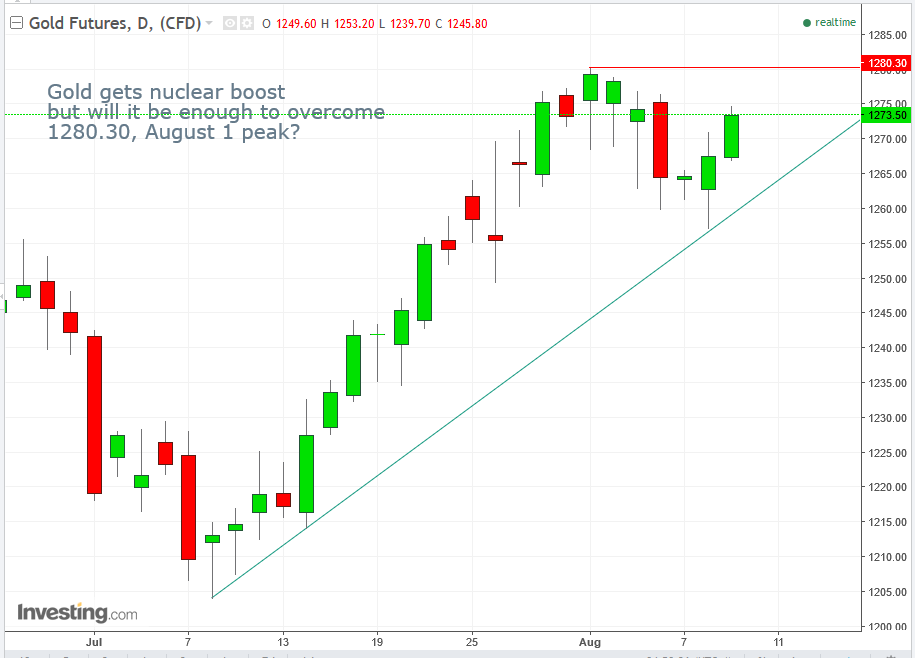
- Gold gained 0.6 percent to $1,268.44 an ounce.
- West Texas Intermediate crude declined 0.1 percent to $49.11 a barrel.
